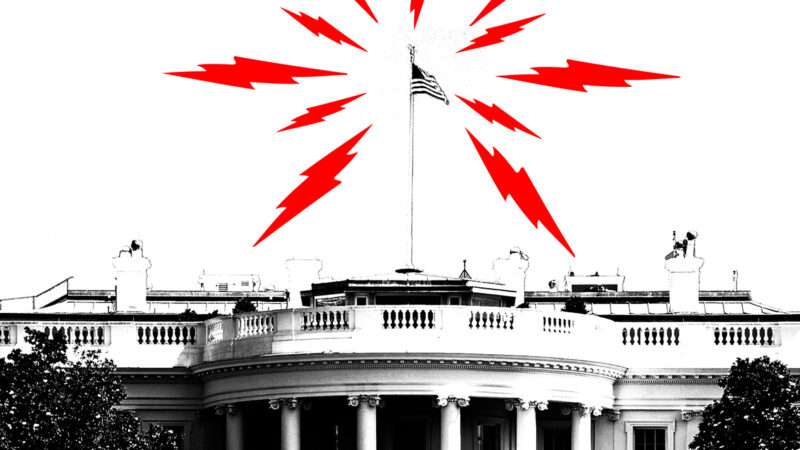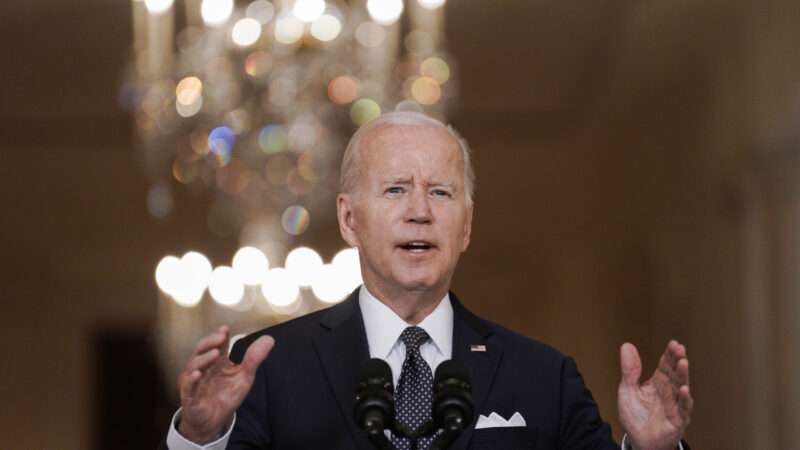From Betzko v. Mick, decided March 28 by the Ohio Court of Appeals (Judge Robin Piper joined by Judge Robert Hendrickson):
Appellant, Clair [Buch] Betzko … [sued] Charles Mick, Karen Francis, and Teresa Bayer. Betzko is the former mayor of the village of New Holland…. Francis and Bayer had … frequently posted to social media and were administrators of a Facebook group page which was often critical on a variety of issues including public officials and the local government. Bayer also erected signs in her yard that stated, “STOP THE CORRUPTION” and “MAKE NH GREAT AGAIN DRAIN THE SWAMP STOP THE CORRUPTION.” In addition, the defendants participated in exchanges with an individual named Derek Myers. Myers is a freelance news reporter who published an electronic forum called The Advocate. Myers was behind several critical social media posts alleging public corruption and publishing unflattering articles in The Advocate.
Francis and Bayer became concerned that certain public officials and law enforcement officers had been stalking and harassing them due to their public commentaries. They made complaints and sent letters to various agencies, including then-Attorney General Mike DeWine. The letter to Attorney General DeWine provided a list of general concerns in a variety of areas, such as the possibility of abuse of power, speed traps, nepotism, inflated charges on water and sewer, intimidation, and harassment. The record does not reveal that any action or response was made in regard to the letter.
In 2018, Mick was hired as a village police officer under the supervision of Chief Jason Lawless. Soon after starting with the department, Mick met with Francis and Bayer in a park outside the village to “talk in general about the police force.” Francis and Bayer expressed their concerns with Betzko’s leadership of the village. Francis and Bayer also told Mick they suspected members of the police department were stalking and harassing them.
Betzko later learned of this meeting and accused Mick of violating the public trust. Betzko also believed there was a conflict of interest because he had personally filed charges against Bayer for intimidating a public servant and thought Mick should have gotten a “third-party opinion on it.” The “it” was evidently whether Mick should have talked with Francis and Bayer to begin with.
Following the meeting at the park, another woman, Brenda Landman organized a meeting with Mick at the police department. This meeting involved charges against an individual that she no longer wanted to pursue. When Betzko learned about the meeting with Landman, he called Mick instructing him to conclude the interview. Mick stopped the interview but claimed his discussion with Landman was over anyway. Betzko later testified that he believed it was improper for a police officer to meet with Landman alone and viewed the interview as another example of Mick being insubordinate and violating the public trust. The record does not clearly establish in what manner the public trust was being violated.
During this period of time, Chief Lawless resigned his position and left the state. The record suggests that the relationship between Mick and Betzko had become irreparably damaged. In a meeting with the new police chief, David Conrad, Betzko expressed the need to investigate Mick based on the interview he had with Landman and the meeting with Francis and Bayer. Betzko decided to fire Mick from the police force, but stopped short of informing him of his dismissal.
Meanwhile, Mick began an investigation into Betzko’s conduct. Mick believed that Betzko had obstructed his investigation by requesting that he stop interviewing Landman. Adding to Mick’s suspicion of Betzko, Mick believed there was evidence that Betzko had committed forgery. The document in question was a SF400 form that contained the signature of Chief Lawless. As Mick stated in his deposition, he was suspicious of the signature because he knew that Chief Lawless was out of state and therefore believed that Betzko had signed Lawless’ name to the document.
Mick obtained a search warrant for the village office to search for “[a]ny records, ledgers, or documents” related to the alleged forgery. On July 23, 2018, Mick served Betzko with criminal charges for felony forgery and misdemeanor obstruction at a city council meeting. Those charges were later dismissed by the Pickaway County Prosecutor.
On November 27, 2018, Bayer filed a malfeasance complaint against Betzko. The complaint contained the signatures of Bayer and nine other electors of the village of New Holland. The complaint, among other things, alleged that Betzko’s son had improperly changed the speed limit signs without prior approval from the Ohio Department of Transportation. The complaint also referenced the criminal charges brought by Mick and alleged that Betzko was “guilty of malfeasance in office.” The complaint was eventually dismissed….
Betzko sued, but the court rejected his claims. As to defamation (and false light), the court reasoned that Betzko had to show “actual malice”—knowing or reckless falsehood—but this hadn’t been shown:
The record contains a number of examples of name-calling and general incivility, but nothing that gives rise to an actionable claim in tort. “[L]iability clearly does not extend to mere insults, indignities, threats, annoyances, petty oppressions, or other trivialities. The rough edges of our society are still in need of a good deal of filing down, and in the meantime plaintiffs must necessarily be expected and required to be hardened to a certain amount of rough language, and to occasional acts that are definitely inconsiderate and unkind. There is no occasion for the law to intervene in every case where some one’s feelings are hurt. There must still be freedom to express an unflattering opinion, and some safety valve must be left through which irascible tempers may blow off relatively harmless steam.”
We have reviewed the statements made by the defendants in their criticism of Betzko and, while many of the statements can clearly be characterized as inconsiderate, unkind, or rude, we find no evidence such statements were made with actual malice….
The court also rejected the malicious prosecution claim:
To establish a claim for malicious prosecution, the plaintiff must prove (1) malice in initiating or continuing the prosecution, (2) lack of probable cause, and (3) termination of the prosecution in favor of the accused….
Probable cause exists when there is sufficient information, derived from personal knowledge or from a trustworthy source, which would lead a prudent person to believe the accused committed an offense. Whether the accused actually committed an offense is not pertinent to a probable cause determination….
In this case, Mick had probable cause to charge Betzko with obstructing his investigation concerning Landman and for forgery concerning the SF400 document. Although facts later came to light that ultimately resulted in the dismissal of the charges, we find that Mick’s actions were commenced with probable cause.
We further find that Bayer’s participation in the statutory malfeasance complaint does not constitute malice and therefore is not actionable. While Betzko may believe that Mick and Bayer treated him unfairly, we find there was no actionable tortious activity to support a claim for malicious prosecution.
Judge Matthew Byrne concurred:
I do not doubt that Betzko was angered, distressed, and embarrassed by many of the negative comments made about him by the defendants. But Betzko, like the judges of this court, was elected. When a citizen decides to run for public office, he or she is choosing to serve the public, which necessarily involves being open to public criticism. Some of that criticism may be inaccurate, uncivil, or mean-spirited, or may be based on what the criticized person views as “misinformation.” In the social media era, many are more likely to shoot off a quick, sharp jab, which may or may not be well-informed, than to take the time to construct a well-reasoned argument. But whether the criticism that public officials face is inaccurate, uncivil, mean-spirited, or “misinformed” is beside the point, from a constitutional perspective. Criticism of elected officials is still protected speech….
A democratic republic cannot operate as it should, and the fundamental rights of individuals cannot be protected, if harsh criticisms of public officials are subject to policing by the courts each time a public official disagrees with that criticism. The same is true in a small village like New Holland, where Betzko was mayor….
[E]ven a public official like Betzko may win a defamation claim if the official can show that the defendant acted with “actual malice”… “… —that is, with knowledge that it was false or with reckless disregard of whether it was false or not” …. Betzko did not provide evidence of actual malice.
All freedoms have costs. One of the costs of the First Amendment and Article I, Section 11 of the Ohio Constitution is that sometimes people will say things that are unpleasant, and maybe even wrong, and there is no redress for the offended party. This is a cost worth paying.
The post Small-Town Libel appeared first on Reason.com.
from Latest https://ift.tt/kQefAm0
via IFTTT





